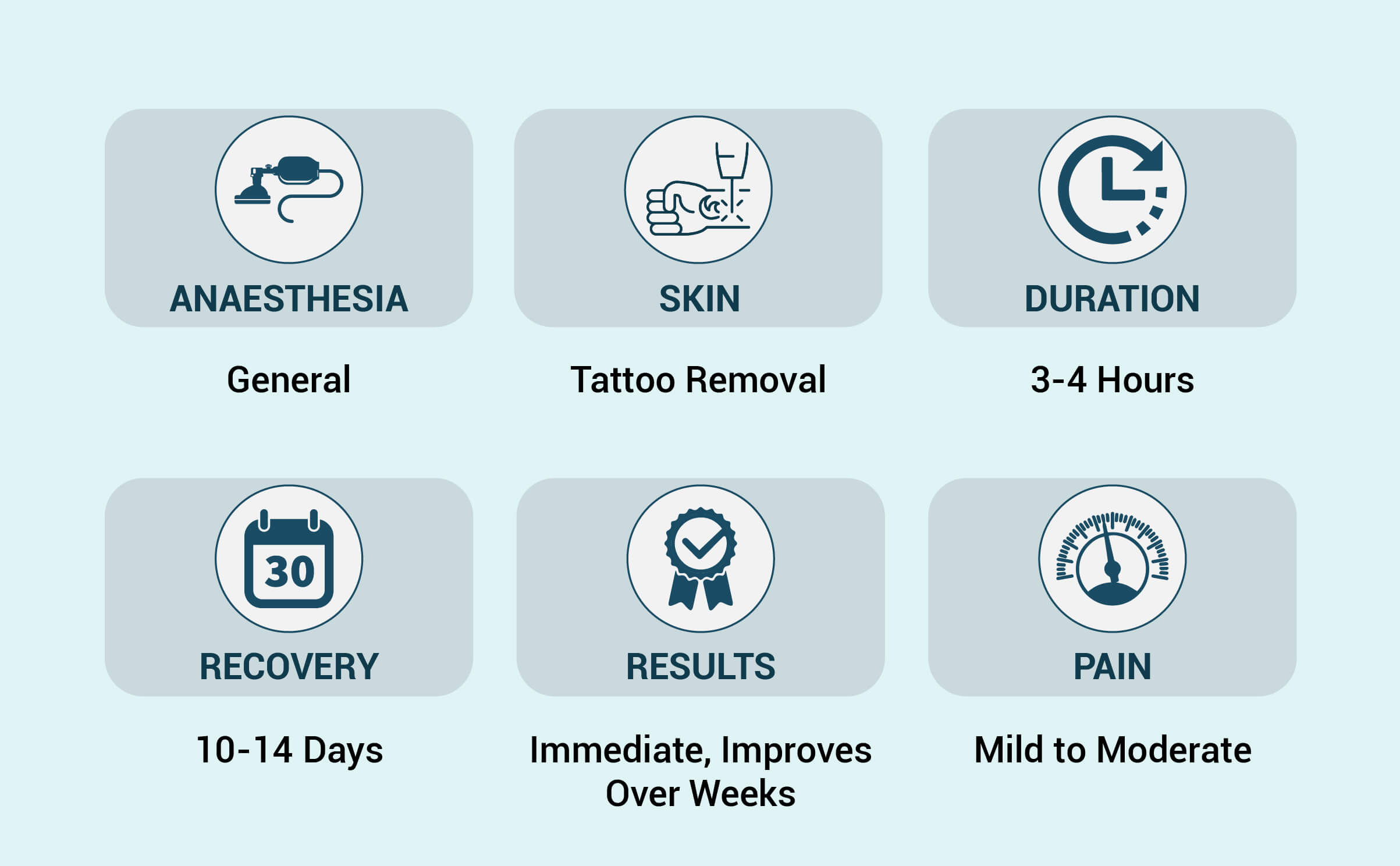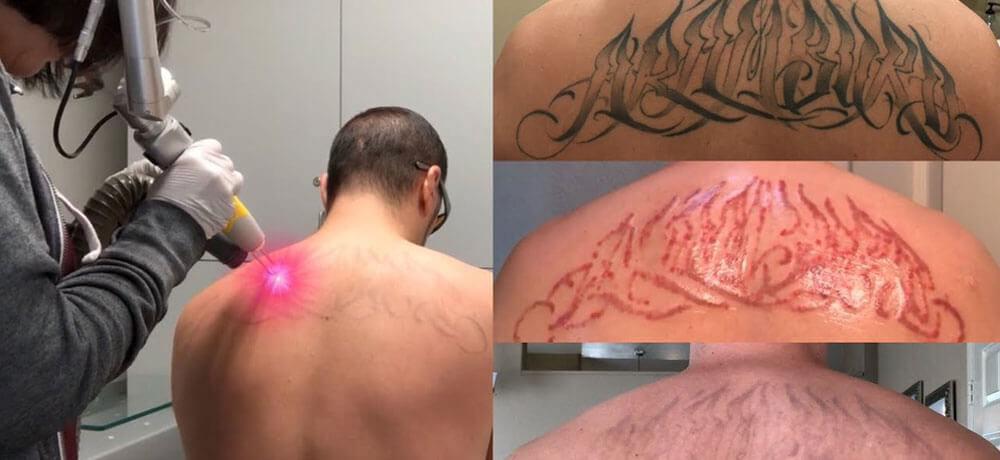Plastic Surgeon for Permanent Tattoo Removal Treatment in Mumbai
What is Tattoo Removal Procedure?
Tattoo removal is a procedure done to try to remove an unwanted tattoo. Standard techniques used for tattoo removal include laser surgery, surgical removal, and dermabrasion.

Reasons for Tattoo Removal

If you regret a tattoo or you're unhappy with the appearance of your tattoo, the tattoo has faded or blurred, or you decide that the tattoo doesn't fit your personality. In such circumstances you should consider tattoo removal.
Tattoo removal might also be done if you are allergic to the tattoo or have an infection.
What are the main risks invovled in Tattoo Removal
Scarring is likely after most types of tattoo removal. Infection or discoloration is possible as well. Hyperpigmentation is related to the patient's tone, with types IV, V, and VI more prone regardless of the wavelength used.
What can you expect?
Tattoo removal is often done as A Lunch Hour procedure with local anesthesia. Standard techniques for tattoo removal include laser surgery, surgical removal and dermabrasion.
Tattoo Removal Techniques available at The Plastic Surgeons
Laser surgery
Q-switched lasers are the treatment of choice for tattoo removal. Before laser treatment, the is numbed with an injection of a local anesthetic or topical application of anesthetic cream. Then a powerful energy pulse is applied to the tattoo to heat and shatter the tattoo ink. Multicolored tattoos might need treatment with various lasers and different wavelengths.
After the procedure, you might notice swelling and possibly blistering or bleeding. Antibacterial ointment can help promote healing. You'll likely need repeated sessions to lighten the tattoo, and it might not be possible to erase the tattoo completely.
Surgical removal
During surgical removal, the is anesthetized. The tattoo is removed with a surgeon's knife, and the edges are stitched back together. Surgical tattoo removal or Tattoo Removal Surgery is effective — but it leaves a scar and might be practical only for small tattoos.
Dermabrasion
During dermabrasion, the tattoo is sanded down to deeper levels with a high-speed rotary device with an abrasive wheel or brush.
The affected area feels sore and raw for several days after the procedure. Recovery can take up to two to three weeks. Due to unpredictable results, it is not a procedure of choice for us.
What happens after a Tattoo Removal
Tattoos are meant to be permanent, and complete tattoo removal is difficult. Some scarring or color variation will remain, regardless of the specific tattoo removal method.
 WhatsApp
WhatsApp